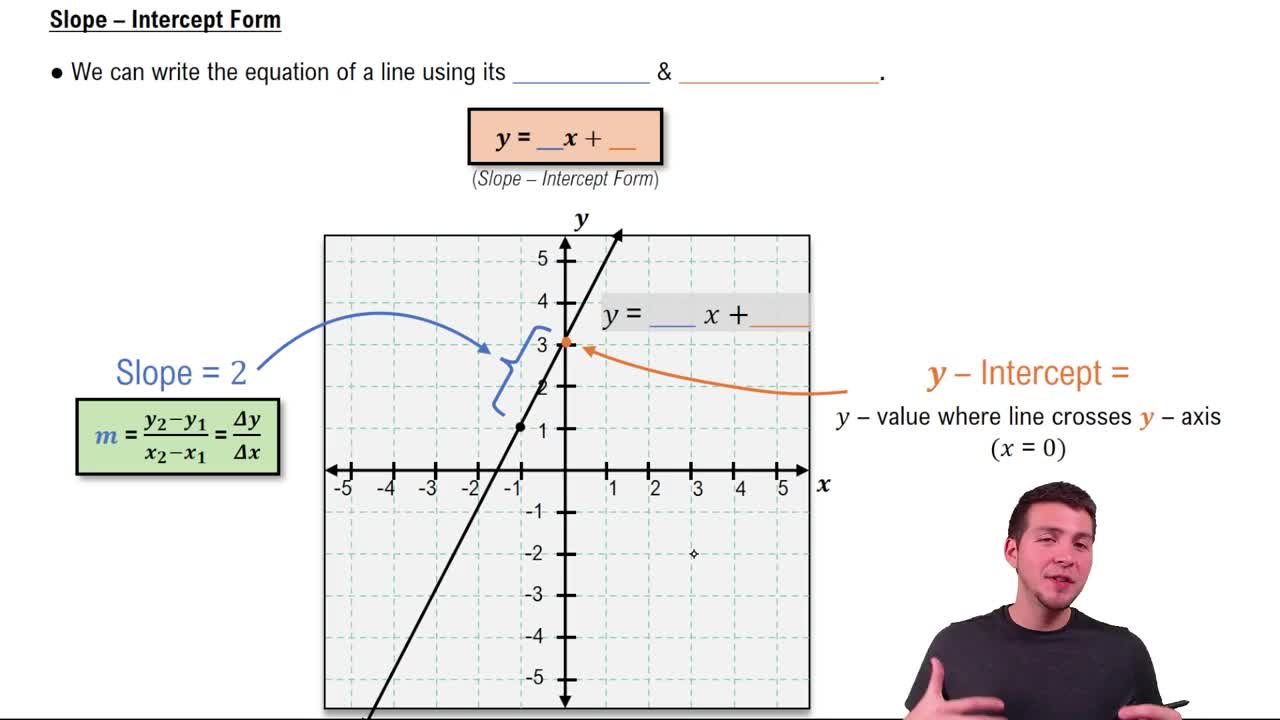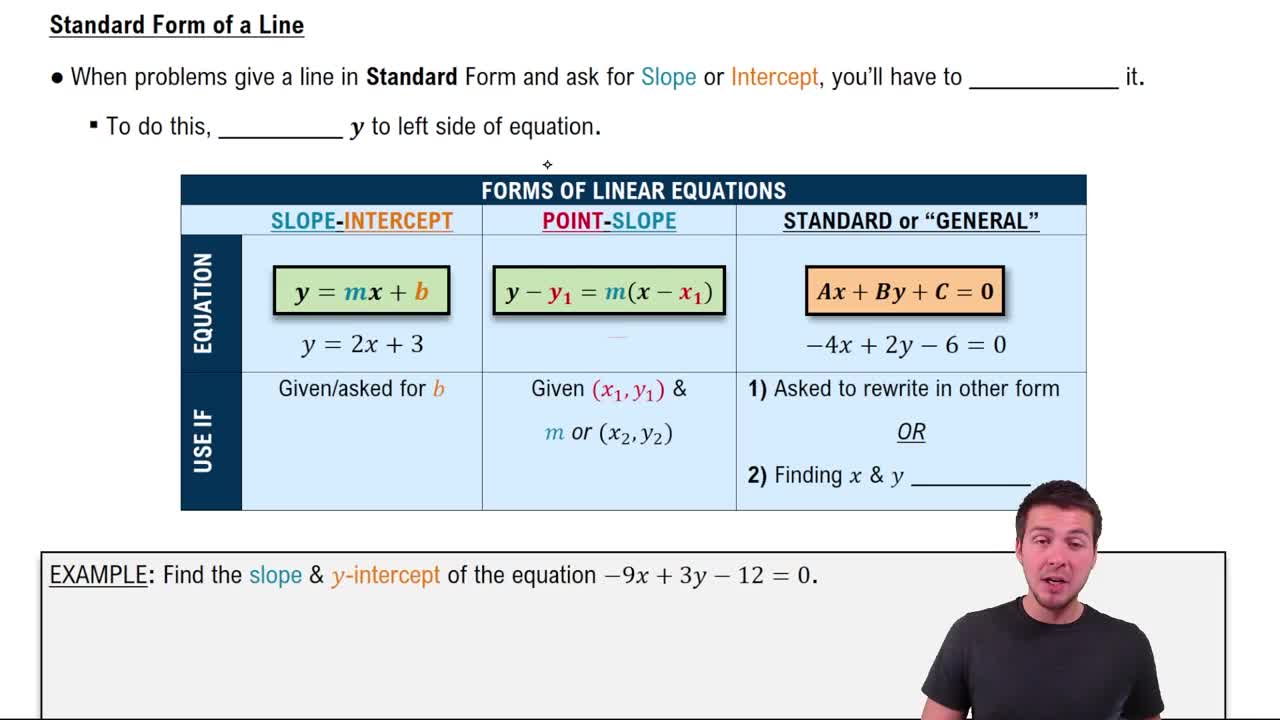Table of contents
- 0. Review of Algebra4h 16m
- 1. Equations & Inequalities3h 18m
- 2. Graphs of Equations43m
- 3. Functions2h 17m
- 4. Polynomial Functions1h 44m
- 5. Rational Functions1h 23m
- 6. Exponential & Logarithmic Functions2h 28m
- 7. Systems of Equations & Matrices4h 6m
- 8. Conic Sections2h 23m
- 9. Sequences, Series, & Induction1h 19m
- 10. Combinatorics & Probability1h 45m
2. Graphs of Equations
Lines
Problem 96
Textbook Question
Retaining the Concepts. If f(x) = 4x^2 - 5x - 2, find [f(x + h) - f(x)]/h, h ≠ 0
 Verified step by step guidance
Verified step by step guidance1
<insert step 1: Start by substituting (x + h) into the function f(x). This means you will calculate f(x + h) = 4(x + h)^2 - 5(x + h) - 2.>
<insert step 2: Expand the expression 4(x + h)^2. This involves using the distributive property: 4(x^2 + 2xh + h^2) = 4x^2 + 8xh + 4h^2.>
<insert step 3: Expand the expression -5(x + h). This involves distributing the -5: -5x - 5h.>
<insert step 4: Combine all the expanded terms to express f(x + h) as 4x^2 + 8xh + 4h^2 - 5x - 5h - 2.>
<insert step 5: Substitute f(x + h) and f(x) into the difference quotient [f(x + h) - f(x)]/h. Simplify the expression by canceling out like terms and factoring out h from the numerator.>
Recommended similar problem, with video answer:
 Verified Solution
Verified SolutionThis video solution was recommended by our tutors as helpful for the problem above
Video duration:
4mPlay a video:
Was this helpful?
Key Concepts
Here are the essential concepts you must grasp in order to answer the question correctly.
Function Evaluation
Function evaluation involves substituting a specific value into a function to determine its output. In this case, evaluating f(x + h) means replacing x in the function f(x) with (x + h) to find the new expression. This is crucial for understanding how changes in the input affect the output of the function.
Recommended video:

Evaluating Composed Functions
Difference Quotient
The difference quotient is a formula used to find the average rate of change of a function over an interval. It is expressed as [f(x + h) - f(x)]/h, where h represents a small change in x. This concept is fundamental in calculus as it leads to the derivative, which measures instantaneous rates of change.
Recommended video:

Product, Quotient, and Power Rules of Logs
Limit Concept
The limit concept is essential in calculus, particularly when dealing with expressions that involve division by zero, such as when h approaches 0. Understanding limits allows us to analyze the behavior of functions as inputs approach a certain value, which is critical for finding derivatives and understanding continuity.
Recommended video:

Interval Notation

 6:49m
6:49mWatch next
Master The Slope of a Line with a bite sized video explanation from Patrick Ford
Start learningRelated Videos
Related Practice












